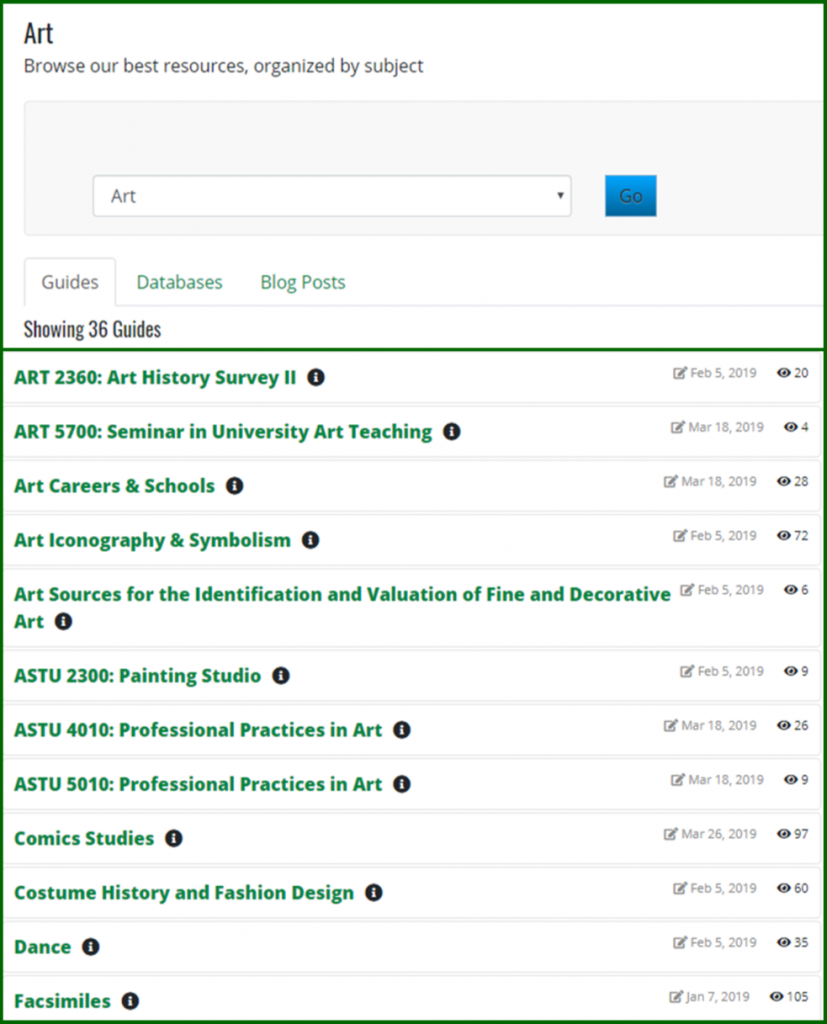
Clear Light Bulb Placed on Chalkboard by Pixabay licensed under Unsplash
Subject guides are not a new concept. They have been employed within academic libraries in either print or electronic format, albeit under different languages, since at least 1973 (Tchangalova & Feigley, 2008). The historic term for this type of research guide is pathfinder; as such a name implies, its purpose was not to serve as a comprehensive, exhaustive resource list but rather a finite, focused set of resources carefully selected as the “best” suggestions for information discovery (Tchangalova & Feigley, 2008). Since then, subject guides have evolved to address issues with scope, layout and format, readability, ease of use, accessibility, resource quality, maintenance and updating, and assessment – and of course, all of this within the sweeping context of the advent of the internet and electronic resources (Morris & Del Bosque, 2010).
Within UNT Libraries, subject and course guides can be accessed from the library homepage by clicking on Subject & Course Guides in the big blue research box. You can type in a subject name or course name/number or browse through the directory. Should you choose a subject within the guides, both the course guides that fall under that subject and general subcategories of that subject will appear (see below).

Screenshot of Art Subject Guides on UNT library website
- Visit the Getting Started guides prior to your research, as well as the Information Literacy, Refworks, Databases, and Scholarly Writing guides. All of these contain essential information that will benefit your research process.
- Take the time to explore all the guides within a subject; you might find valuable information in a related guide. Most of the time you can access the suggested resources directly through the links provided.
- Don’t forget that if you see a recommended book you wish to read, simply click the link and then select Request for Pickup to place an online hold on the book. Choose your desired pickup location, and the library staff will do the work and email you when the book is ready.
- Be sure to note the subject librarian who created the guide; their photo, location, phone number, and email are clearly visible on the right-hand side. Should you have any subject-specific questions or need further assistance with your research topic, they are readily available to help you!
Happy researching! Please feel free to share your thoughts through our comments form or email us at askus@unt.edu.
References
Morris, S. E., & Bosque, D. D. (2010). Forgotten resources: Subject guides in the era of web 2.0. Technical Services Quarterly, 27(2), 178-193. doi:10.1080/07317130903547592
Tchangalova, N., & Feigley, A. (2008). Subject guides: Putting a new spin on an old concept. E-JASL: The Electronic Journal of Academic and Special Librarianship, 9(3). Retrieved from http://southernlibrarianship.icaap.org/



Leave a Reply